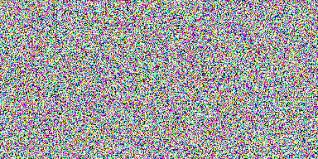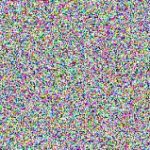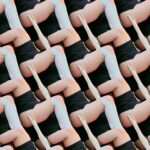Stable Diffusion web UI(AUTOMATIC1111) を使用しないでGoogle Colab でControlNet を使う方法 (StableDiffusionControlNetPipeline)
Google ColabでリモートUIが使用できなくなりそうなので別の方法を試します
Diffusers
Diffusers は、分子の画像、音声、さらには 3D 構造を生成するための最先端の事前トレーニング済み拡散モデルの頼りになるライブラリです。
[3つのコア コンポーネント]
わずか数行のコードで推論を実行できる最先端の拡散パイプライン。
さまざまな拡散速度と出力品質に対応する交換可能なノイズスケジューラ。
ビルディング ブロックとして使用でき、スケジューラと組み合わせて使用できる事前トレーニング済みのモデル
https://github.com/takuma104/diffusers
StableDiffusionControlNetPipeline
StableDiffusionControlNet用のパイブラインを使います
次のサイトの処理を動かしてみます
https://colab.research.google.com/github/huggingface/notebooks/blob/main/diffusers/controlnet.ipynb#scrollTo=AocAEIA8n33t
参考
https://huggingface.co/docs/diffusers/main/en/api/pipelines/stable_diffusion/controlnet
Google Colab用のソース 一部修正
「真珠を持つ少女」をcanny pre-processor:を使って4枚の画像を作成して表示するサンプルです
!pip install -q diffusers transformers xformers git+https://github.com/huggingface/accelerate.git
!pip install -q opencv-contrib-python
!pip install -q controlnet_auxfrom diffusers import StableDiffusionControlNetPipeline, ControlNetModel, UniPCMultistepScheduler
from diffusers.utils import load_image
import cv2
from PIL import Image
import numpy as np
import torch.utils
image = load_image(
"https://hf.co/datasets/huggingface/documentation-images/resolve/main/diffusers/input_image_vermeer.png"
)
image
image = np.array(image)
low_threshold = 100
high_threshold = 200
image = cv2.Canny(image, low_threshold, high_threshold)
image = image[:, :, None]
image = np.concatenate([image, image, image], axis=2)
canny_image = Image.fromarray(image)
canny_image
controlnet = ControlNetModel.from_pretrained("lllyasviel/sd-controlnet-canny", torch_dtype=torch.float16)
pipe = StableDiffusionControlNetPipeline.from_pretrained(
"runwayml/stable-diffusion-v1-5", controlnet=controlnet, torch_dtype=torch.float16, safety_checker=None
)
#
pipe.scheduler = UniPCMultistepScheduler.from_config(pipe.scheduler.config)
#
pipe.enable_model_cpu_offload()
#
pipe.enable_xformers_memory_efficient_attention()
#if pipe.safety_checker is not None:
# pipe.safety_checker = lambda images, **kwargs: (images, False)
device = "cuda"
pipe.to(device)
prompt = ", best quality, extremely detailed"
prompt = [t + prompt for t in ["Sandra Oh", "Kim Kardashian", "rihanna", "taylor swift"]]
generator = [torch.Generator(device=device).manual_seed(2) for i in range(len(prompt))]
output = pipe(
prompt,
canny_image,
negative_prompt=["monochrome, lowres, bad anatomy, worst quality, low quality"] * 4,
num_inference_steps=20,
generator=generator,
)
def image_grid(imgs, rows, cols):
assert len(imgs) == rows * cols
w, h = imgs[0].size
grid = Image.new("RGB", size=(cols * w, rows * h))
grid_w, grid_h = grid.size
for i, img in enumerate(imgs):
grid.paste(img, box=(i % cols * w, i // cols * h))
return grid
image_grid(output.images, 2, 2)Layered Diffusion Pipeline
Stable Diffusionパイプラインをより柔軟に使用するためのラッパーライブラリです。
こちらの方が扱いやすいです
https://note.com/tomo161382/n/n971549d430bc
https://github.com/nanashi161382/unstable_diffusion
実用的な処理
パッチ処理で複数枚の画像を作成する処理を作りました
https://memo.eightban.com/stable-diffusion/stable-diffusion-diffusers1











ディスカッション
コメント一覧
まだ、コメントがありません